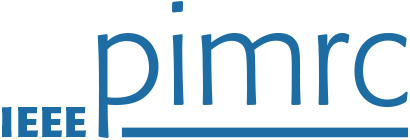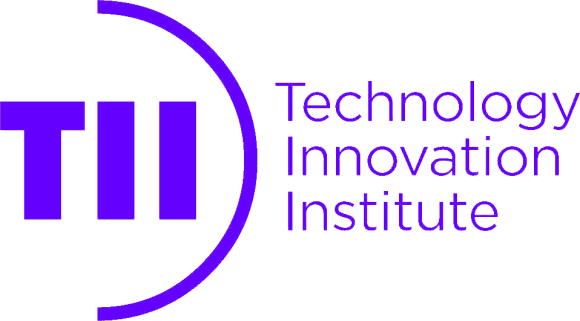Day: Tuesday, 05 September
Time: 9:00 – 12:30
Room: Pier 3
Tentative Detailed Program Below:
Keynote:
Wei Yu, “Learning for Distributed Optimization”, Professor of Electrical and Computer Engineering Department, University of Toronto, Canada
Accepted papers:
[1] 1570915698: Mobile-Aware Online Task Offloading Based on Deep Reinforcement Learning in Mobile Edge Computing Networks
Authors: Yuting Li (Sun Yat-Sen University, China); Yitong Liu (School of Data and Computer Science, Sun Yat-sen University, China); Xingcheng Liu (Sun Yat-Sen University & Xinhua College of SYSU, China); Qiang Tu (School of Electronics and Information Technology, Sun Yat-sen University, China); Yi Xie (Sun Yat-Sen University, China)
[2] 1570915726: Communication-Efficient Federated Multi-Task Learning With Sparse Sharing
Authors: Yuhan Ai, Qimei Chen, Yipeng Liang and Hao Jiang (Wuhan University, China)
[3] 1570915758: Security and Efficiency Enhancement for Split Learning: A Machine Learning Based Malicious Clients Detection Approach
Authors: Guan Qiang, Fang Fang and Xianbin Wang (Western University, Canada)
[4] 1570915822: Time-Series Prediction Using Nature-Inspired Small Models and Curriculum Learning
Authors: Shruti Bothe, Hasan Farooq, Julien Forgeat and Kristijonas Cyras (Ericsson, USA)
[5] 1570918576: CSFRL: A Reinforcement Learning Technology Enabled Computing Power Scheduling Framework Based on Kubernetes
Authors: Wenliang Cheng and Yueqiang Xu (Beijing University of Posts and Telecommunications, China); Quansheng Xu (No. 50 Institute of CETC, China); Heli Zhang and Xi Li (Beijing University of Posts and Telecommunications, China); Xun Shao (Toyohashi University of Technology, Japan)
[6] 1570920115: Cooperative Multi-User Detection for Satellite IoT Under Constrained ISLs
Authors : Sirui Miao, Neng Ye, Qiaolin Ouyang, Peisen Wang and Xiangming Li (Beijing Institute of Technology, China); Lian Zhao (Ryerson University, Canada)
Nowadays, standard machine learning approaches require to centralize the training data on a single data center or cloud. Since massive data samples need to be uploaded to the data center, transmission delay can be very high and user privacy is not guaranteed in standard centralized machine learning approaches. However, low-latency and privacy requirements play a crucial role in the emerging application scenarios, such as unmanned aerial vehicles, extended reality (XR) services, and autonomous driving, which makes centralized machine learning approaches inapplicable. Moreover, due to limited communication resources, it is impractical for all the wireless devices that are engaged in learning to transmit all of their collected data to a single data center for data analytic or network self-organization. Therefore, it becomes increasingly attractive to deploy learning algorithms at edge devices, called edge learning. A typical edge learning framework (e.g., federated learning) features distributed learning over many wireless end-user devices cooperating with edge devices, such as access points or base stations, to train a common artificial intelligence (AI) model using local data. This scenario typically involves an iterative learning process, repeatedly downloading and uploading of possibly high-dimensional (millions to billions) model parameters or their updates by tens to hundreds of edge devices. This may generate substantial data traffic, placing a heavy burden on already congested radio access networks. The training problem cannot be efficiently solved using traditional wireless techniques targeting rate maximization and decoupled from learning. Achieving the goal of edge learning with high communication efficiencies calls for the designs of new wireless techniques based on approaches integrating seamlessly communication and learning.
Thus, this proposed full-day workshop will seek to bring together researchers and experts from academia, industry, and governmental agencies to discuss and promote the research and development needed to overcome the major challenges that pertain to this cutting-edge research topic. Suitable topics for this workshop include, but are not limited to, the following areas:
• Secrecy of edge learning algorithms
• Over-the-air computation for edge learning
• Fundamental limits of edge learning systems
• Wireless network optimization for improving the performance of edge learning
• Data compression for edge learning
• Adaptive transmission for edge learning
• Techniques for wireless crowd labelling
• Modeling and performance analysis of edge learning networks
• Energy efficiency of implementing machine learning over wireless edge networks
• Ultra-low latency edge learning and inference
• Experiments and testbeds on edge learning
• Privacy and security issues in edge learning
• Edge learning for intelligent signal processing
• Edge learning for user behavior analysis and inference
• Distributed reinforcement learning for network decision making, network control, and management
Organizer
Changsheng You, Southern University of Science and Technology, China
General Co-Chairs
• Changsheng You, Department of Electronic and Electrical Engineering, Southern University of Science and Technology, China.
• Ming Zeng, Department of Electrical and Computer Engineering, Laval University, Canada.
• Fang Fang, Department of Electrical and Computer Engineering, Western University, Canada.
Workshop TPC Co-Chairs
• Mingzhe Chen, Electrical and Computer Engineering Department, University of Miami, US.
• Zhaohui Yang, Zhejiang Lab, College of Information Science and Electronic Engineering, Zhejiang University, China.
• Dingzhu Wen, School of Information Science and Technology, ShanghaiTech University, China.
IMPORTANT DATES
Paper Submission Deadline: 19 May 2023 Extended date: 31 May 2023
Acceptance Notification: 16 June 2023
Camera-Ready Due: 07 July 2023
Workshop Date: 05 September 2023







